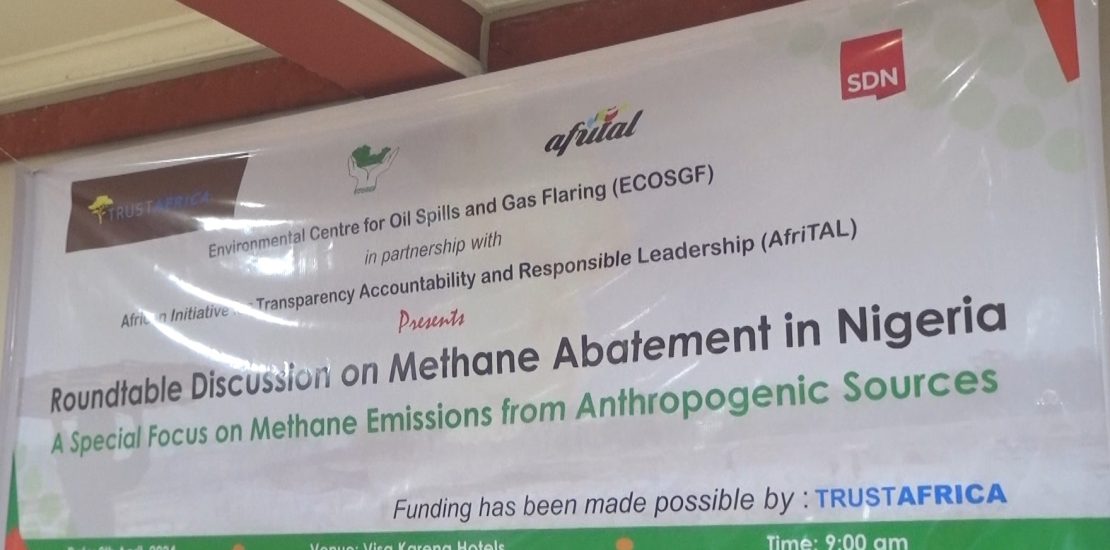- April 10, 2024
- Posted by: Precious David
- Category: Uncategorized

In a bid to address the pressing issue of methane emissions and its far-reaching implications, a diverse group of stakeholders convened at the Visa Karena Hotel in Port Harcourt on April 9th, 2024. The event, themed “A Special Focus on Methane Emissions from Anthropogenic Sources,” brought together experts, government officials, civil society organizations, and media representatives from across Nigeria. The goal? To co-create solutions and synthesize new knowledge aimed at driving down methane emissions and mitigating their adverse effects on the environment and public health.
Methane emissions, accounting for about 60% of global emissions, play a critical role in exacerbating climate change. However, these emissions from anthropogenic sources often receive limited visibility. Recognizing the urgency of the matter, the Methane Abatement in Nigeria project, funded by TrustAfrica, seeks to address this gap. Led by the Environmental Centre for Oil Spills and Gas Flaring (ECOSGF), in collaboration with other key Civil Society Organizations (CSOs), the project aims to mobilize stakeholders and catalyze action to curb methane emissions in Nigeria.
The keynote address delivered by Mr. Adam Heal, an Executive Director at the Stakeholder Democracy Network (SDN), shed light on the dynamics of methane emissions from the oil and gas sector. Emphasizing the need for accurate measurement and reduction strategies, Mr. Heal underscored methane’s disproportionate impact on climate change and the environment.
Dr. Louis Brown Ogbeifun, the Executive Director of AfriTAL, further elaborated on the sources and impacts of methane emissions from anthropogenic sources. From agriculture to waste management, Dr. Ogbeifun highlighted the interconnectedness of methane emissions with climate change and public health. He proposed various strategies, including technology adoption and climate-smart agriculture, to address these emissions effectively.
The panel discussion, featuring experts from academia, government, and civil society, delved into Nigeria’s progress in methane abatement and identified key challenges and opportunities. From inconsistent emissions trends to the need for attitudinal changes and inter-ministerial collaboration, the panelists emphasized the importance of multi-stakeholder engagement and policy implementation.
Looking ahead, the roundtable discussion outlined actionable steps to advance methane abatement efforts in Nigeria. From enforcing existing policies to promoting climate-smart agriculture and enhancing waste management practices, the consensus was clear: concerted action is needed at all levels to curb methane emissions and safeguard the environment for future generations.
The roundtable discussion on methane abatement in Nigeria served as a platform for robust dialogue, knowledge sharing, and collaboration among diverse stakeholders. By harnessing collective expertise and commitment, Nigeria is poised to address the pressing challenge of methane emissions and contribute to global efforts to combat climate change. As we navigate the complexities of environmental sustainability, let us heed the call for action and work together towards a greener, healthier future for all.
